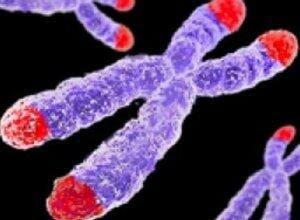Telomerase Promoter Cancerous Mutations Act When Cells Differentiate

Human telomerase reverse transcriptase (hTERT) promoter mutations can cause oncogenesis in somatic cells. The molecular mechanism, eluded so far, consists on failing to silence TERT expression in somatic cells presenting mutations in the TERT promoter. The finding, from Dr. Hockemeyer’s lab at the University of California in Berkeley, has been published in eLife.
Telomeres, the protective ends of chromosomes, shorten with each cell division, causing cells to die or enter into senescence after approximately 50 divisions. Stem cells, however, can divide indefinitely thanks to the telomerase enzyme, a reverse transcriptase that carries its own RNA template to elongate telomeres. When stem cells become a specialized cell type, telomerase expression is silenced and cells become mortal.
Some types of cells happen to become cancerous because of mutations that keep telomerase active when it should have been inactivated. Mutations in the TERT promoter have been identified in certain cancer types. Dirk Hockemeyer and his team decided to try those mutations in human embryonic stem cells (hESCs), to see if they enhanced TERT expression or activity. They previously failed to see any difference between cancer cells carrying or not the mutations, but they later attributed it to cancer cells having acquired telomerase activity by alternative ways. The researchers did not find different TERT activity or expression in hESCs with mutated TERT promoter. However, they saw an effect when they differenciated the hESCs into connective tissue cells. Unlike the wild-type cells, the TERT promoter mutants did not restrict TERT expression, so they kept long telomeres. When these mutant human cells were transplanted into mice, they kept longer telomeres as well. The researchers concluded that certain TERT promoter mutations can make cells immortal and tumorigenic.
Source: http://elifesciences.org/content/4/e09519.full

